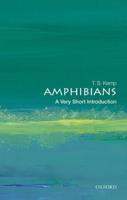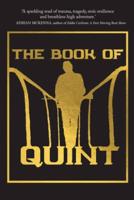Publisher's Synopsis
"The most thorough and exhaustive study of a single reptile species ever carried out. [It] will become a classic."--Henry Fitch, University of Kansas
"An unparalleled accomplishment in herpetology."--John L. Behler, Curator, Department of Herpetology, New York Zoological Society
The Bengal Monitor, the most comprehensive study ever done on a single reptile species anywhere in the world, completes Walter Auffenberg's monumental trilogy on the behavioral ecology of monitor lizards. Together the books provide baseline ecological principles and behavioral descriptions that scientists will use to frame all future theoretical models of the genus Varanus. The group consists of about fifty species, all found in the Old World, many of which are considered endangered.
Unlike the lizard species emphasized in the first two books, the Bengal monitor inhabits a huge range, extending from Java to the Iran and Afghanistan borders, including many different habitats.
To unravel the biological elements of this lizard's survival strategies, Auffenberg concentrates on the diet and foraging behavior of the Bengal monitor, studying its prey base--mainly small insects--in remarkable detail. Because most monitors are mainly insectivorous, this book reflects the more usual pattern in which these lizards compete with other predatory birds and mammals in the local environment.
The descriptions of complex ecological relationships assure the book's use by parasitologists, entomologists, mammalogists, and ecologists generally.
To study the lizards (which measure about five feet from nose to tail), Auffenberg captured them with techniques that depended on his location and often on local good will: licensed hide hunters shot specimens out of trees in Malaysia; trained dogs trapped them in Myanmar; in the marshy lakes of the Indus Valley he hired tribal Jogi "snake charmers" to flush them from cover and catch them by hand. During a twenty-year period, his research for The Bengal Monitor took him to museums, laboratories, and field sites throughout southern Asia and then home to Florida, where he observed a colony of monitors that he transplanted to greenhouses in his backyard.
Walter Auffenberg is Distinguished Research Curator Emeritus at the Florida Museum of Natural History, Gainesville. He chaired the Department of Natural Science from 1963 to 1973 and served as curator of herpetology from 1963 until he retired in 1991. He is the author of Gray's Monitor Lizard (UPF, 1988) and The Behavioral Ecology of the Komodo Monitor (UPF, 1981), for which he received the Wildlife Society's Best Wildlife Book Award. He currently serves as technical advisor for an hour-long television program on the Komodo monitor.









